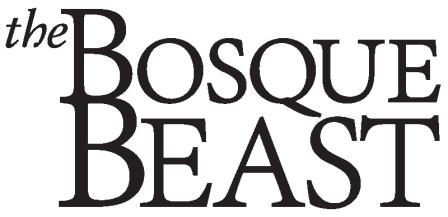
An ‘alternative’ view of animals
Among the slew of books being published these days about the inner life of dogs, a little-noticed paperback by dog trainer Kevin Behan called Your Dog Is Your Mirror (New World Library, 2012) has really grabbed my attention. Behan offers the startling proposition that dog behavior actually mirrors our emotions — especially our subconscious, unexpressed emotions — and that this sensitivity is what has made the dog (along with the horse, I would add) humans’ best friend.
Behan’s idea is startling to us because of the rationalist bias in our thinking about animals. We are trained to think of behavior (even our own) in scientific terms: Feelings are patterns of neural activity in the brain. However, Behan’s view is not so remote from the Native world view, which for millennia has seen animals as possessed of hidden power and knowledge that can help humanity.
Behan’s language falls between these extremes, in the world of pop psychology: He says dogs “act out” on their humans’ emotional energies. This idea got me wondering about the weird middle-of-the-night barking of my normally calm Scottie dog, Brisket. I asked my husband if nighttime ever makes him nervous, because it’s dark out and his vigilance is relaxed. “I used to,” he said, “until we got Brisket.” Ba-da-bing! That certainly helps explain why “my” dog always sleeps next to my husband’s side of the bed, in “alert” mode. It may turn out to be Greg’s issues that keep Brisket up at night.
Behan’s proposal also recalls what Shelly Gibb says in Donna Wells’ documentary about women and horses (page 14). An equine therapist and animal communicator, Gibb relates how her horse is able to sense when her moods are honest, adding that “Horses are so sensitive, they remind us to be authentic, and that it’s OK to be who we really are inside.”
Such thinking, like Behan’s, is sure to infuriate people who equate “New Age nonsense” with a return to the Dark Ages, before the Enlightenment of scientific rationality. But even if you don’t buy the quasi-spiritual perspective, it’s striking how often it appears now in the mainstream — along with holistic medicine, “slow” food, do-it-yourself, and all the other ancient ideas that are suddenly new again.
Along similar lines, a dog-trainer friend tells me there is growing backlash to Cesar Milan’s authoritarian, dominance-based approach to dog training. Many of us flocked to Milan’s pack-leader program, only to find that, while it works to some degree — just as being a disciplinarian works on your kids to some degree — success comes at a price. We may actually want more from our dogs than obedience, just as we want more from our human relationships than winning and being right. Not only is such victory fleeting, but a top-dog stance toward the world deprives us of any perspective on our own true nature.
Too New Agey for you? Get used to it. In all areas where a super-rational, materialist, hypermasculine approach has failed to achieve peace, love, happiness, health, liberty, or equality, there is a growing movement to try the Other Way, which we might call feminine. That doesn’t mean putting women above men — either gender can embrace “masculine” thinking — but righting natural opposites that have been dangerously skewed for centuries in one direction.
Society’s changing attitude toward animals is one of the clearest signs of this coming reversal. Animals are seen less and less today as tools to be used, or even as children to care for (the prevailing view), and increasingly — as the New Agers would have it — as divine messengers with something to teach us.
Keiko Ohnuma
Editor & Publisher
